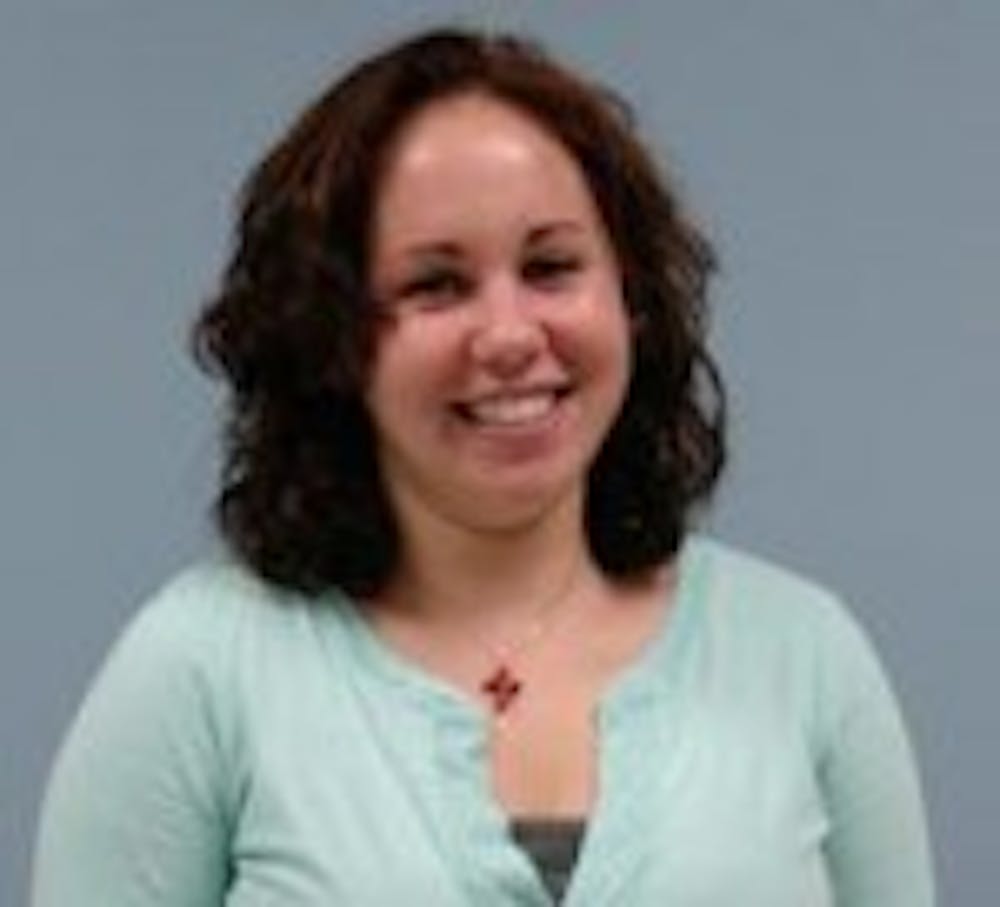Recently I went through what many students refer to as "hell week" - four exams in as many days.
After hours of cramming only to know that I'd forget the information within 48 hours, I braved the first exam. It consisted of 25 multiple-choice questions, each one a crippling blow to the stomach.
And then I realized I was scheduled for three more intellectual ass beatings.
It was definitely enough to make me wonder why I chose to be a pharmacy major and why certain classes favor certain exam formats.
Does the reality that fact-based classes favor multiple-choice exams while idea-based classes favor essay questions and term papers have anything to do with the type of person who chooses that particular field of study?
Every year, a new class of sophomores does some soul searching and declares a concentration. The choice often takes into account likes, dislikes and if you're lucky, some knowledge of your capabilities and style of learning.
One who has difficulty expressing his or her thoughts to others but possesses a near-photographic memory is more likely to become a science or engineering major than a communications major.
Likewise, if you have a hard time understanding quantum theory in physics but can construct a haiku that bring grown men to tears, perhaps English composition is your calling.
If we know we excel in some testing techniques but fall short in others, it's likely that this knowledge will carry over, at least in some part, into our choice of major.
Just shortly before "hell week," one of my professors had our entire class take a personality test. He used the overall results to demonstrate that the majority of students who decide to pursue pharmacy practice and actually make it through the application process tend to have similar personality traits.
Many pharmacy majors tested as being black-and-white thinkers, introverted, extremely practical and liked to be in charge of circumstances or projects. On the opposite end of the gamut are liberal arts majors, who tend to be "feelers" rather than "judgers" and more extroverted than those in the sciences.
These characteristics usually carry over into learning style, thus correlating with testing procedures that are repeatedly used in various programs. Classes in the humanities often use exams based around essay questions while the sciences favor multiple-choice tests.
I'd be willing to bet that pharmacy majors aren't the only ones to experience the phenomenon of sharing character qualities with classmates.
Fields like engineering, history or mathematics all require a certain way of thinking, so it isn't surprising that those who excel within a field often share traits and learning styles.
Personality tests have even been used to assess which careers suit someone best, which only adds to a piling up of like-minded people.
The result of this trend implies that people in a given field may take a common approach to problem solving. A natural cross-section of personalities will always exist, but if there are certain criteria regarding success, the variance in thought processes diminishes.
If everyone is taught to "think outside the box," doesn't traditionalism then become unique?
Astounding advancements have been made when someone from outside a discipline uses his or her own unique approach to a task. For example, artists have worked with ecologists to solve environmental problems and researchers without a medical degree have won Nobel prizes in medicine.
When a left-brained way of thinking is applied to a right-brained problem, nothing more than base knowledge is needed, and much can be gained by simply asking for a new perspective.





